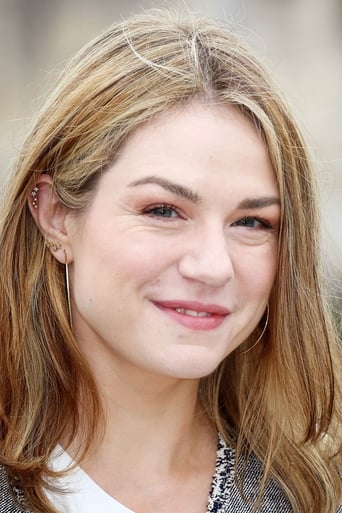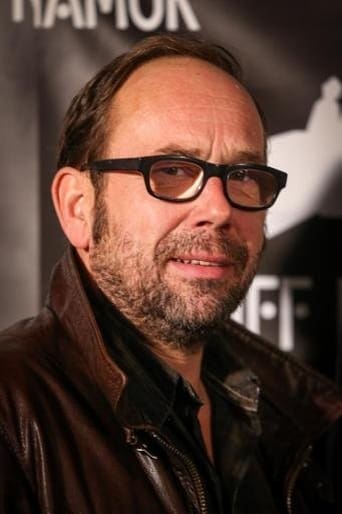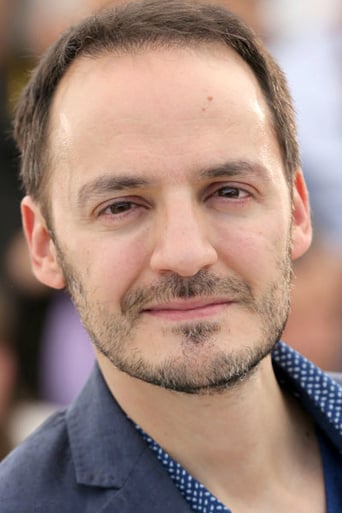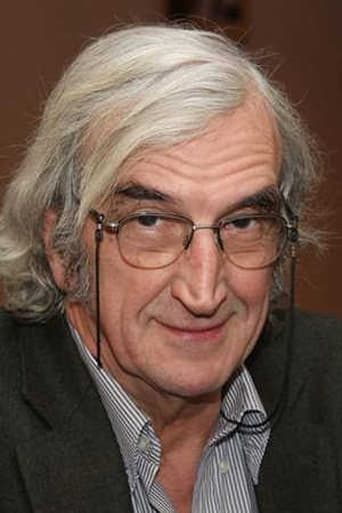Exoticalot
People are voting emotionally.
Pluskylang
Great Film overall
Moustroll
Good movie but grossly overrated
Juana
what a terribly boring film. I'm sorry but this is absolutely not deserving of best picture and will be forgotten quickly. Entertaining and engaging cinema? No. Nothing performances with flat faces and mistaking silence for subtlety.
ElMaruecan82
As usual with the Dardenne brothers, there's no time for fancy film-making or cinematic conventions. "Rosetta" opens with the titular 'heroine' walking in her white uniform in some unidentified workplace while the camera follows her, chases her would be most appropriate term as it seems struggling to keep her on frame, while we can hear the loudness of her firm steps indicating that she's either angry or determined. She's both actually.
She's angry to learn that she won't be working anymore, her probationary delay had just ended, angry because she thinks she's been denounced for coming too late by a co-worker (whom she confronts) and determined to keep her job and not let anyone throwing her away. She locks herself in a room but it's only a matter of time before security agents get her out. This is the beginning of "Rosetta", Golden Palm winner of 1999, a unanimous vote, and from the way the first scene plays, we suspect that this ending is only a new beginning.
The Dardennes brothers style of filmmaking is integral to the power of "Rosetta", it can look like pretentious art-house take-the-camera-and-shoot cinema verité but the content is so genuinely powerful that you can't accuse the form. "Rosetta" always walks one step ahead of the camera, we often see her from behind going from one direction to another, this is a young girl struck by poverty and unemployment, living in a trailer park and witnessing the downfall of her mother, prostituting herself for booze. She seems to go in many directions because she can't afford standing still and a job isn't a matter of life and death, but of self-esteem, her mother surrendered, she wouldn't.
But then I make the film sound like delivering an uplifting message about courage and determination, and it would be too misleading. The Dardennes are too aware of the harsh reality of unemployment and poverty to make anything remotely happy emerge from it, perhaps the greatest tragedy of being poor is that it leads to a point where you can't afford even happiness. And Rosetta, played by Emilie Dequenne (she won the Cannes Prize for her performance) rarely smiles, she's suspicious, tacit except when it comes to ask for a job, she's got the will, the determination but Dardennes' movies aren't filmed like melodramas but documentaries, which doesn't diminish their power in terms of pure storytelling.
The film takes off when she finds a job in little Belgian waffle stand, her boss (Olivier Gourmet) warns her about the precariousness of the job, but she learns well and fast. There she meets Riquet (Fabrizio Ringone) who seems genuinely interested in her. Still, if I didn't expect a romance, I didn't expect what would result from their encounter... and what happened was the perfect illustration of the inner ugliness of despair, when you've got nothing to lose and you can drive yourself to any corner. "Rosetta" is a melodrama in the sense that she can't be in love with something, except with the idea of having a job, a steady job and a normal life.
Before sleeping, she recites herself that she finally found a job, this is interesting because we suspect she would never go as far as trading her body, or becoming a criminal. Even the perspective of working illegally doesn't rejoice her, what she wants is to feel normal, like everybody, to be happy, but can she? The extreme where she's driven is perhaps more disturbing than any of these scenarios because it consists of betraying. That's the power of poverty, it can make people act like heroes, victims and sometimes villains. The Dardennes who paint with the brush of truth the uncompromising portrayal of poor people, make us question our own perceptions..
This is not about sentimentalism, this is not about left-wing pathos, Rosetta is pathetic to some aspects, but there's no effort to make her sympathetic, she's just incapable to be happy or give a proper meaning to her life because she's been alienated already, it became symptomatic of her life. The film closes at the moment where we reached that realization and maybe it stops abruptly because it can either take a good or a bad path, but the point is made in this harrowing journey in Belgium, resurrecting the Italian neo-realism. There's something bad Rosetta does in the film but it's as bad what the protagonist does at the end of "Bicycle Thief", we condone it but we understand it.
And I guess the Dardennes don't make film to provide emotional moments but just keep us close enough so we can understand why some people look gloomy, unhappy, suspicious and why they deserve our understanding and ironically enough our distrust. It's sad and cruel, but that's how it is. And again, the directing is part of the film's greatness, it takes us to very uncomfortable and closeted places like the inside of a trailer, a small bathroom, a waffle stands, we all feel like intruders, put in a place that are no cinematically pleasing, but that's the point, the camera goes where Rosetta goes, to places cinema usually ignores.
The Dardennes don't care for the 'look', even if the long take isn't perfect, this isn't Hollywood, within this imperfection, we can sense tension, reality, urgency, despair, struggle and we have a glimpse of these emotions through the documentary style. Conventional filmmaking couldn't have worked for such a story, it had to be as minimalist as if it was embracing the same problems than its character. That's typical of the Dardennes, just like in "The Promise", as if the way they told the story was as inspiring as the story itself or made the same point. Like Italian neo-Realism or like Hitchcock movies, the form sometimes defines the content.
Boba_Fett1138
Always hard to say something about these sort of movies, since they are being so simple in its setup and you can really hardly go wrong with these type of movies. And this one is good within its genre, though I can't say that it's being the most involving and interesting movie to watch.You could say that this movie is being like a random slice of life and it's following a young woman around, who is struggling to keep a steady job. There of course is a whole lot of other drama going on as well, also involving a romantic plot.In the end it also still is a movie that leaves more questions than answers. The movie isn't all about explaining everything to you and tells you what happens after certain events and perhaps more importantly; why. It's OK to feature such an approach, especially for a movie of this sort but in this case I would had preferred some more depth and explanations, to get me more involved with its story and characters.That was also a big problem for me; I just couldn't ever like or understand the movie its main character. She obviously has some kind of issues and is socially very awkward. Not really a likable person, you want to hang around with, which also makes her not all that great and involving to follow around, in my opinion.But still as these sort of movies go, I really can't call it a bad one. It never bores and it never drags at any point, though this is obviously a slower type of movie, in which not an awful lot is going on, all the time. It's perhaps not a very engaging movie but it still remains an interesting one, also mostly because it never really gets predictable.Certainly watchable, especially when you are into these type of movies.7/10 http://bobafett1138.blogspot.com/
tieman64
One time Palme d'Or winner, now forgotten, the Dardenne brothers' "Rosetta" stars Emilie Dequenne as Rosetta, a teenage girl trying to escape an alcoholic mother, her decaying trailer park (ironically titled "Grand Canyon", an abyss which sucks in an entire underclass) and her apparently dead-end existence. The film recalls Robert Bresson's "Mouchette", but is shot with fierce, angry hand-held camera work, which mirrors Rosetta's own bottled up rage and desperation. One passage, in which the seventeen year old Rosetta is virtually exploited by a company for cheap labour, led to Belgium changing several laws, banning employers from paying teenage workers less than the minimum wage. It's a tiny, condescending, almost insignificant real-life gesture, but the kind of little gestures which keep today's Rosettas alive nevertheless.The film isn't only about Rosetta's daily struggles for survival, but the blind eyed turned toward an entire stratum of society. Rosetta is a member of a socio-economic class which the world refuses to deal with, let alone acknowledge. Like a disease, she finds herself being pushed further and further out."Rosetta" is heavily influenced by Bresson's "Mouchette", another film which revolved around a marginalised girl who cares for a burdensome mother. And like Bresson, the Dardennes focus on their heroine's own private rituals: the taking off of muddy boots, the scrounging for and preparing of food, the tending to an alcoholic mother etc. And all the while, Rosetta's plotting: how do I escape this? What future will I be allowed? At the end of "Mouchette", Bresson's heroine seemed to resort to suicide, rolling into a muddy pond. The pond features in "Rosetta" as well, though here it is both a source of life and death. Rosetta goes to it for fish, for food, for escape, while later, when a friend falls inside it, she initially refuses to save him. After-all, with him dead, she can inherit his business and perhaps make some money. It is in her best interest to ignore him, to discard his body and turn away as society does to her. But of course she doesn't. She fishes him out. Unlike the world, she views him, if only for a moment, as a kindred spirit rather than a competitor.Still, suicide factors into "Rosetta" as well, for our hero does eventually regard it as her only mode of escape. Ironically, like Bresson's "The Devil Probably", she must pay for her own suicide. Even her death has been commodified. In this way, the film not only exposes the indifference of contemporary capitalism, in which economic disparities grow by the day, in which class has become a bigger distinction than nationality, language, religion etc, but highlights a certain impossibility of morality. Rosetta saves a life, but in doing so may have destroyed her own future.8/10 – Not as aesthetically strong as similar modern movies in its field ("Wendy and Lucy", "Mouchette", "Land of Plenty" etc), or the Italian neo-realist, British kitchen-sink and French new-wave films which inspire it. Worth one viewing.
Michael Neumann
The heroine of this admirable but depressing French import is a sullen and troubled (both for good reason) teenager living in trailer trash penury with her alcoholic mother, and stubbornly pursuing what she calls "a normal life": defined as a paying job and someone to call a friend. Dramatic slices of life don't often come more lifelike than this, and thankfully so. It's about as far from Hollywood glitz and glamour as a film can get without becoming a documentary, taking as its subject part of an underclass typically ignored both on and off screen.The transparency of the script suggests a largely improvised scenario (there isn't much in the way of dialogue at any rate), and the performances are as natural as breathing. But the lack of any cosmetic crutches (music cues, sympathetic characters, a tidy resolution) can make watching it an oppressive experience, and all the restless, hand-held cinema veritè camera-work is enough to give the viewer a headache. The film won a handful of awards at Cannes, no doubt because it offers such an obvious stylistic rejection of the ongoing West Coast colonization of Europe, but there isn't anything here for audiences looking for entertainment.







